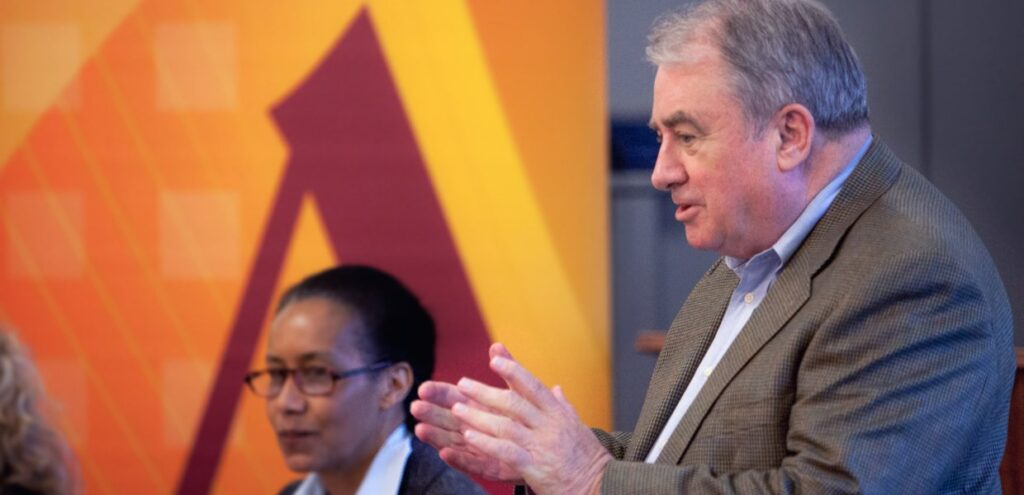(Michael Parks, professor of journalism emeritus / Photo by USC Annenberg)
Michael Parks, Pulitzer Prize winner, former editor of the Los Angeles Times, and former director of USC Annenberg School for Communication and Journalism, played an outsized role in the conception and implementation of the Center for Health Reporting.
In 2008, as the Great Recession descended on us all, Michael saw a desperate need to help local media “add capacity” to its health policy coverage. People were being thrown out of work across California, and in-turn, losing income and health coverage. Obamacare’s passage was two years away. It would be years longer before it could cushion the blow. Health policy was being tested on every level. It was an important story, but one the news media, itself hemorrhaging from the economic downturn, was struggling to cover.
Michael had convinced a major player in California health policy, the California Health Care Foundation (CHCF), to fund a pilot project to test the viability of his vision – the goal of which was to partner with California news media outlets to tell ambitious, in-depth, human-focused stories about health issues affecting families, communities and institutions.
After he persuaded me to head up the pilot, the two of us rented a car and motored across the state to sell the idea. We talked to editors in Bakersfield, Merced, Escondido and Santa Cruz, among many, about how we might help them.
It was a difficult conversation at first. “What’s your agenda?” they asked in chorus, suspecting that the foundation, the university, and our “big-paper” backgrounds had some disguised motive. Our only goal, we said, was to help their staff inform readers about health policy issues that affect their lives. We would provide a project editor and project reporter, and would integrate their reporting and photo staff into the effort.
Finally, we got the go-ahead from several papers to get to work on health issues impacting their communities. The stories rolled out over the next six months. After the publication of four front-page projects, Michael was convinced we had achieved proof of concept and he sold CHCF the idea of funding a USC-based, full-fledged Center for Health Reporting. It would be staffed with seven professional journalists who would identify and tell important stories about health policy.
In the fall of 2009, the Center for Health Reporting was launched. This month, the Center embarks on its 13th year.
Its success stems from the vision and dedication of Michael, whose decorated career includes serving as a foreign correspondent in Beijing, Moscow, Jerusalem and Johannesburg, winning a Pulitzer Prize, holding the role of editor at one of the nation’s largest daily newspapers, educating many future journalists at Annenberg, and, of course, bringing crucial “added capacity” to dozens of California news media organizations to cover health policy.
